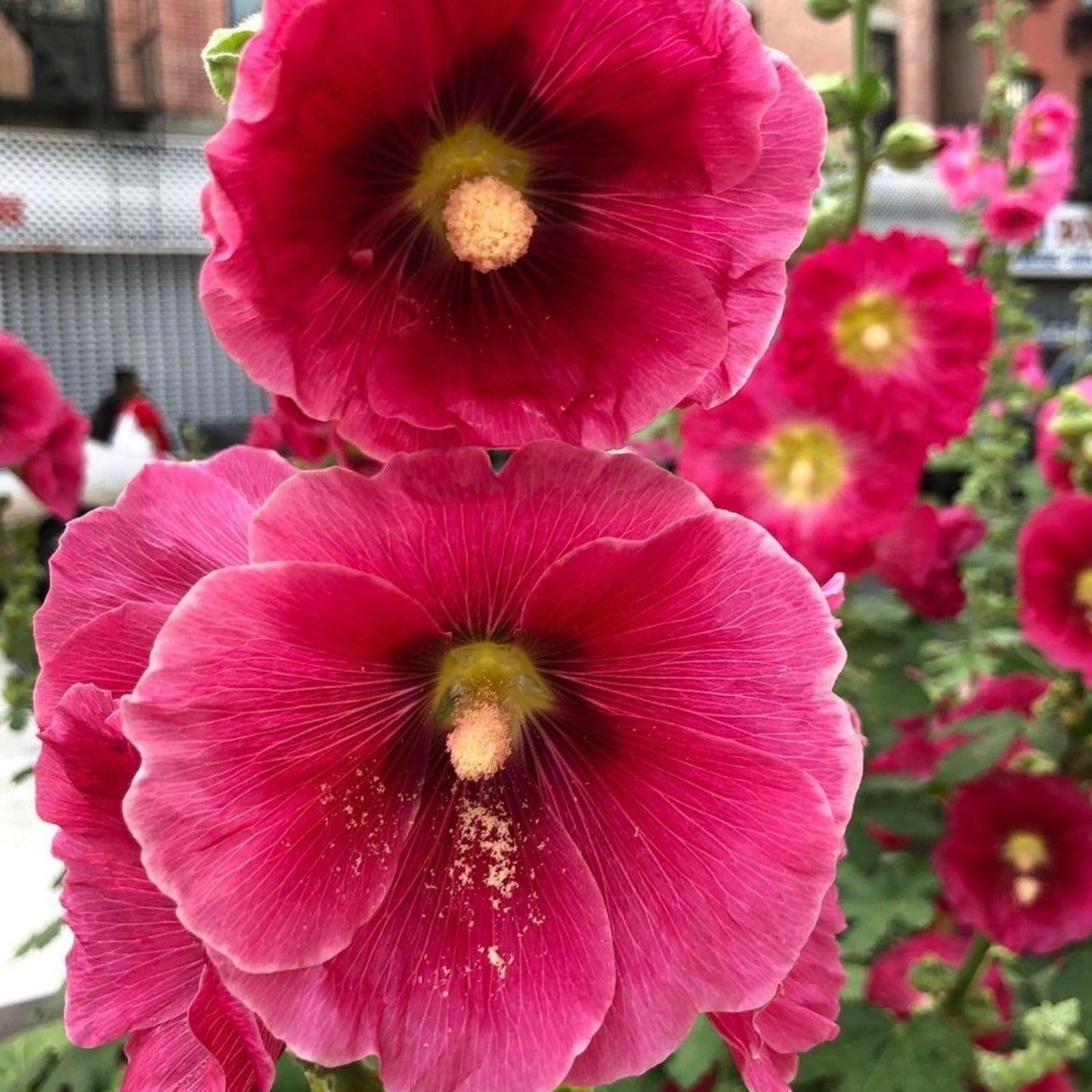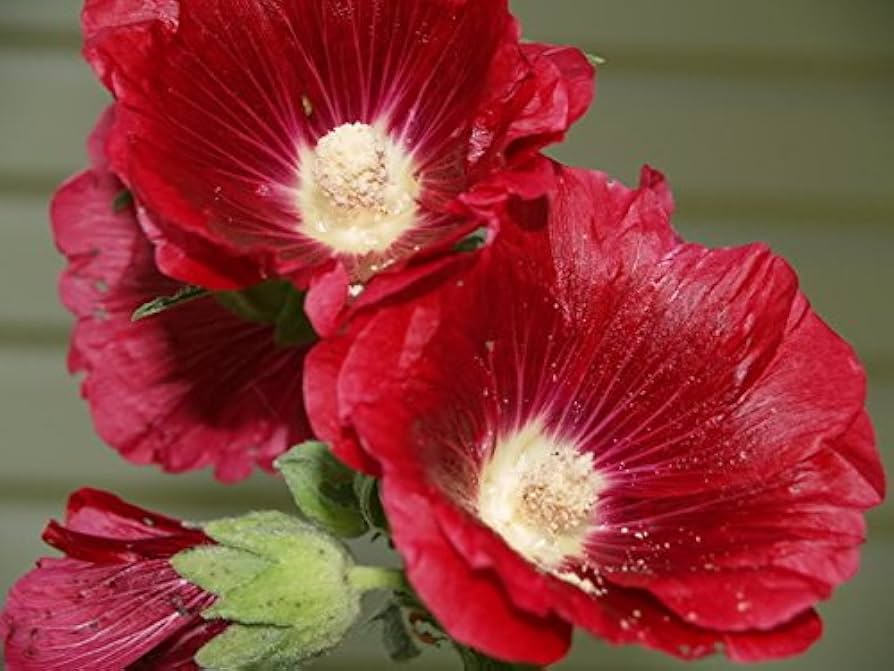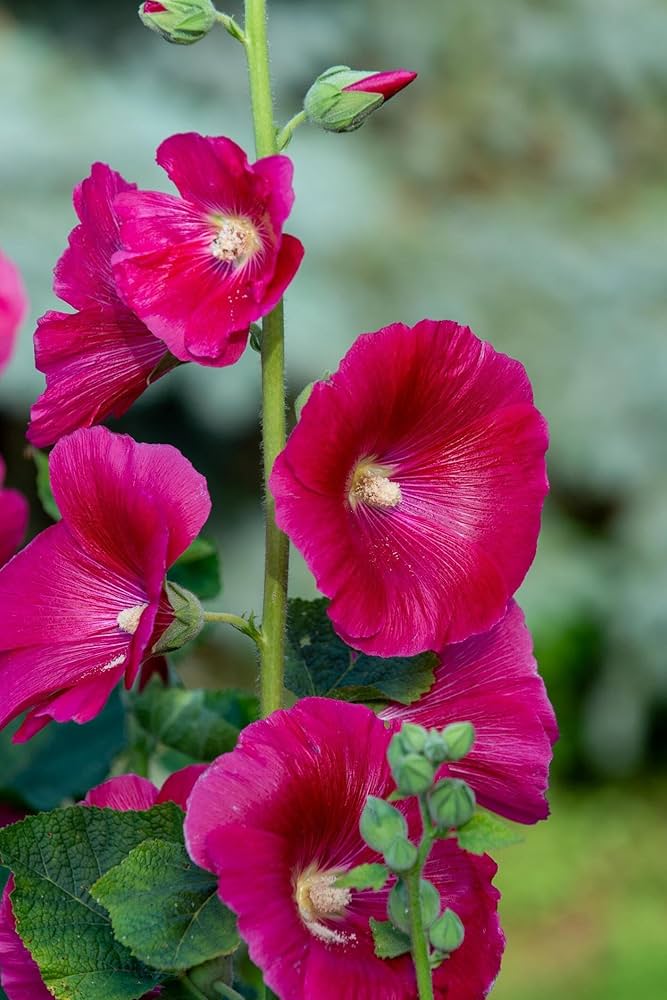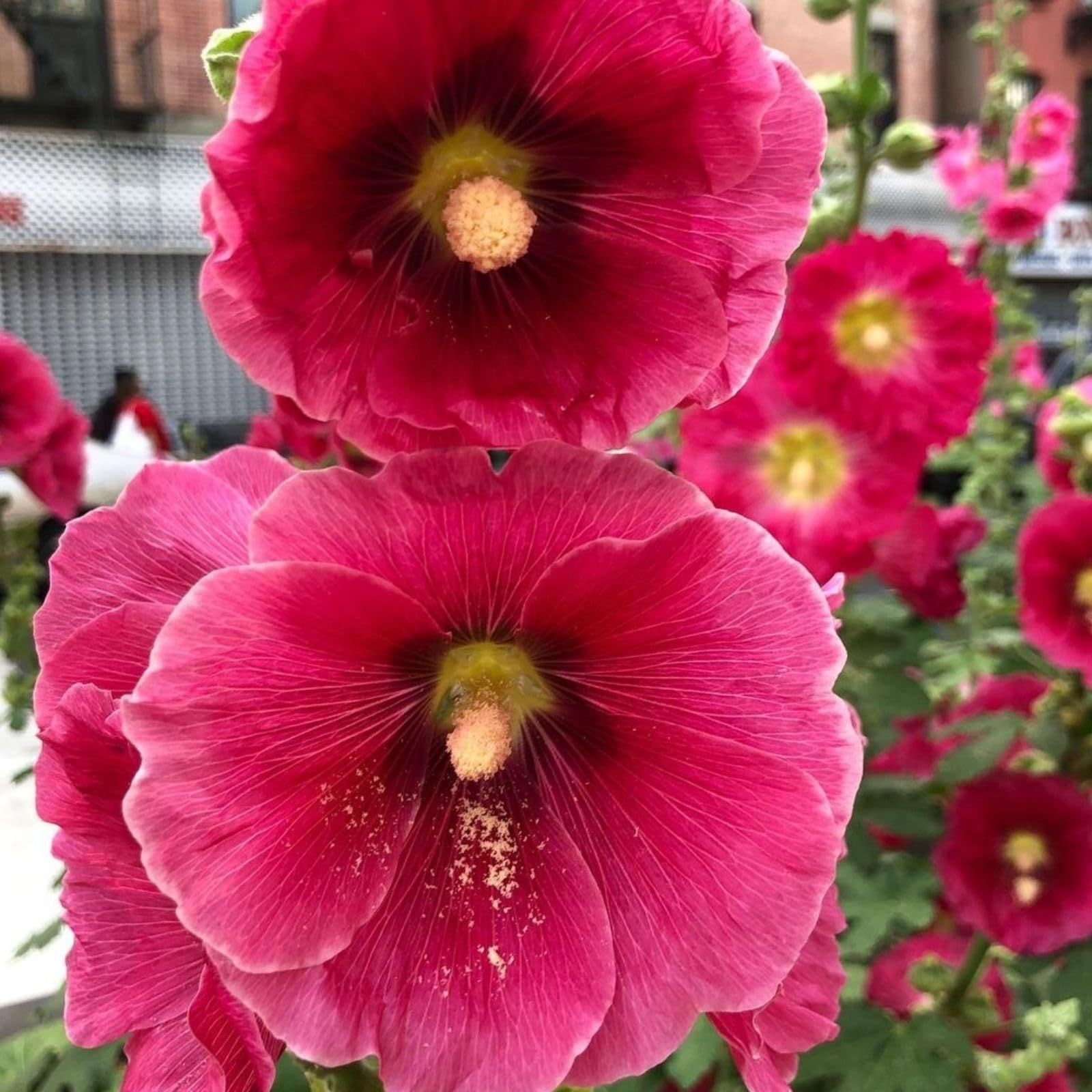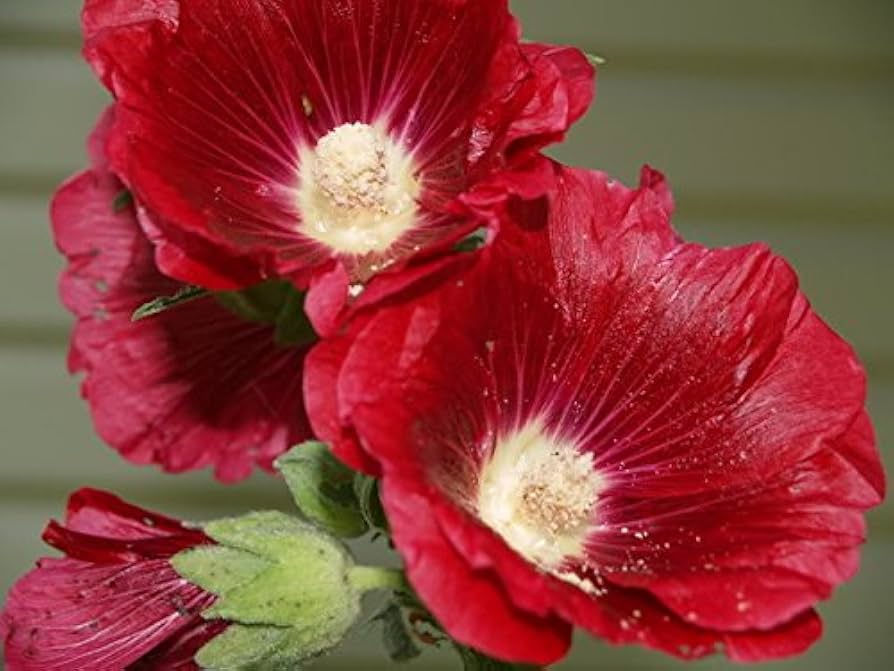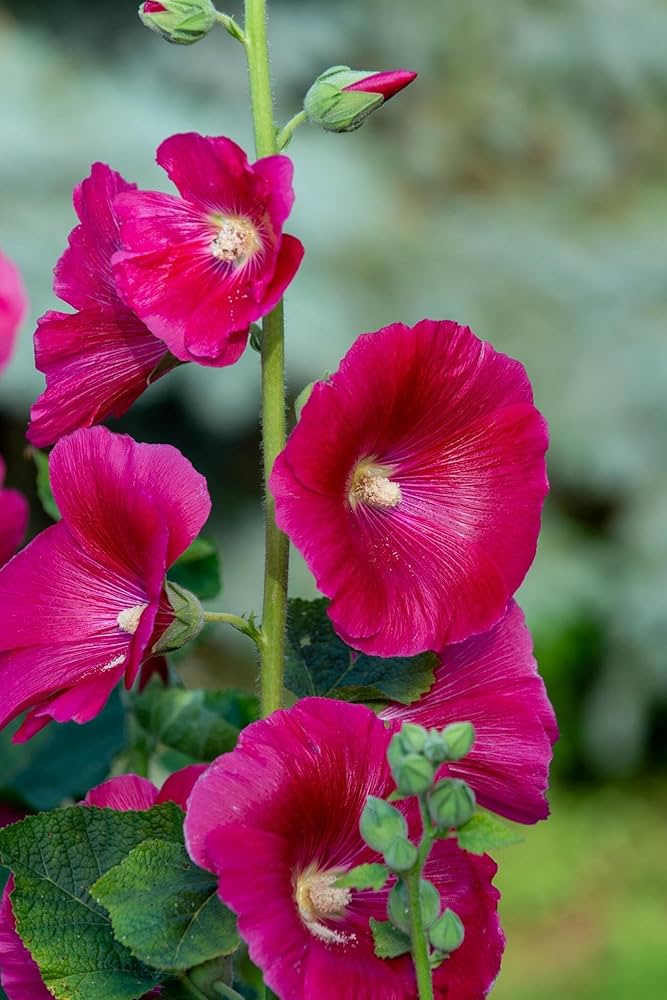Hollyhock flower Alcea rosea dark red seeds for planting in backyard garden or tall flower beds
Couldn't load pickup availability
Description
Dark Red Hollyhock (Alcea Rosa) Seeds
Characteristics and Uses of Dark Red Hollyhock
Dark Red Hollyhock (Alcea rosa) is a classic cottage garden flower known for its towering spikes of deep crimson-red blooms. These stately biennials can grow up to 8 feet tall, making them a stunning vertical accent in garden beds, along fences, or as backdrops in mixed borders. The lush, velvety flowers bloom in summer and are a magnet for pollinators like bees, butterflies, and hummingbirds.
Growing Conditions for Dark Red Hollyhocks
- Light Requirements: Full sun
- Soil Type: Rich, well-drained, and slightly alkaline
- Temperature Range: Prefers 60–75°F (15–24°C)
- Humidity: Tolerates moderate to high humidity
Planting Tips for Hollyhock Seeds
- Sow seeds directly outdoors in spring or fall for blooms the following summer.
- Plant 1/4 inch deep and cover lightly with soil.
- Space plants 18–24 inches apart to allow airflow and reduce mildew risk.
- Stake taller plants to prevent wind damage.
Watering Instructions and Tips
- Keep soil consistently moist but not soggy, especially during germination and blooming.
- Water at the base to avoid wetting foliage, which can promote rust disease.
- Mulch around plants to retain moisture and suppress weeds.
Growing Zones
- USDA Hardiness Zones: 3–9
- Global Growing Zones: Suitable for temperate and cool climates
Key Benefits & Uses
- Produces striking dark red, bell-shaped flowers on tall spires
- Ideal for pollinator and butterfly gardens
- Excellent cut flower and cottage garden favorite
- Attracts bees, butterflies, and hummingbirds
- Provides vertical height and dramatic color contrast in landscapes
Best Uses in the Garden
- Back of borders or fences for vertical interest
- Wildflower gardens and pollinator-friendly spaces
- Traditional cottage gardens and vintage-themed beds
Conclusion
Dark Red Hollyhock Seeds bring bold beauty and a touch of nostalgia to the garden. Their towering stems and rich red blooms are a timeless choice for adding drama and elegance, while supporting essential pollinators.
FAQ
Are hollyhocks annuals or perennials?
They are typically biennials, blooming in their second year, but can reseed to return yearly or grow as short-lived perennials in milder climates.
Do hollyhocks need to be staked
